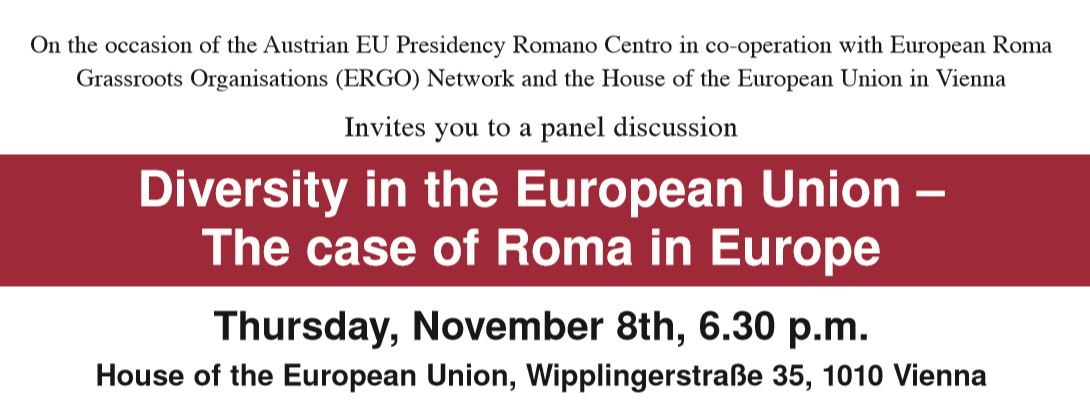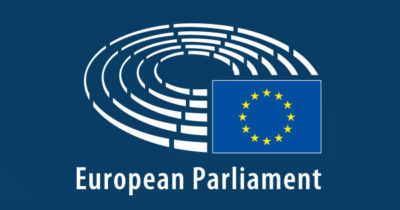


PRESS RELEASE
Brussels, 29 October 2018
The Alliance against Antigypsyism demands clear commitment of European Parliament President Tajani against antigypsyism
Brussels, 29 October 2018 – European Parliament President Antonio Tajani criticised the Italian government’s plan for a citizenship income in an interview on Italian public broadcaster RAI earlier this week, and said that “the citizenship income will end up in the pockets of Roma, of foreign citizens — from the EU and non-EU — and certainly not in those of many Italian citizens.”
The Alliance against Antigypsyism criticizes that such statements fuel antigypsyism in the public discourse, and demands a clear commitment of European Parliament President Tajani against antigypsyism.
Romani Rose, Chair of the Central Council of German Sinti and Roma, said: “The statement of Parliament’s President Tajani confirms how deep-rooted antigypsyist stereotypes are in European societies and institutions. Even unconscious linguistic images often lead to the exclusion of minorities and consolidate antigypsyism in society. In 2015, the European Parliament recognized the Holocaust against the 500,000 Sinti and Roma in Nazi-occupied Europe and adopted a clear strategy to combat antigypsyism in its October 2017 resolution. Political leaders and representatives have an important responsibility for the cohesion of our society. Therefore, it would be a sign of political responsibility that President Tajani proclaims unequivocally the fight against antigypsyism as a constitutional and democratic task.”
Gabriela Hrabanova, Director of the European Roma Grassroots Organisations (ERGO) Network, underlined: “Mr Tajani’s narrative is a reflection of antigypsyism as the norm in the political discourse. This is especially dangerous ahead of the EP elections and elections at the national and local level. It is a contradiction that the EP asks Member States to implement the Framework Decision, transpose and enforce the Racial Equality Directive, and most recently calls on Member States to ban neo-fascist and neo-Nazi groups, while it keeps othering Roma who have been European citizens for centuries. These kinds of statements also undermine ongoing work at EU level on fighting antigypsyism.”
Michaël Privot, Director of the European Network Against Racism, said: “Mr. Tajani’s racist comment just shows how mainstream politicians can legitimise racist and xenophobic discourses put forward by far-right and neo-fascist groups instead of rejecting them. It is high-time that the European Parliament’s President tackles racist speech both within and outside his own house. This means both taking disciplinary measures against Members of the European Parliament who use hate speech against Roma and other minorities and initiating public condemnation of hate speech in Member States.”
Although some members of the European Parliament denounced the comments and demanded a public apology, the leadership of the European People’s Party, of which Mr Tajani is a member, did not condemn the statement and Mr Tajani has to date not publicly apologised.
For further information, contact:
ERGO Network: Jamen Gabriela Hrabanova, Executive Director, g.hrabanova@ergonetwork.org
Tel: +32(0)2 893 10 49
Central Council of German Sinti and Roma: Jonathan Mack, Policy Officer, jonathan.mack@sintiundroma.de
Tel: +49 (0) 6221 981101
European Network Against Racism (ENAR): Georgina Siklossy, Senior Communication and Press Officer, georgina@enar-eu.org
Tel: +32 (0)2 229 35 70 – Mobile: +32 (0)473 490 531
Notes to the editor:
- The ‘Alliance against Antigypsyism’ is a coalition of organisations that promote equality of rights for Roma and combat antigypsyism on institutional and societal level. The aim of the Alliance is to advance understanding of antigypsyism as a specific form of racism, and to strengthen the political will and institutional mechanisms in order to tackle antigypsyism in Europe. The Alliance is coordinated by the European Roma Grassroots Organisations (ERGO) Network, the European Network against Racism (ENAR) and the Central Council of German Sinti and Roma.
- European Parliament resolution of 25 October 2018 on the rise of neo-fascist violence in Europe (2018/2869(RSP)),http://www.europarl.europa.eu/sides/getDoc.do?pubRef=-//EP//TEXT+TA+P8-TA-2018-0428+0+DOC+XML+V0//EN&language=EN





